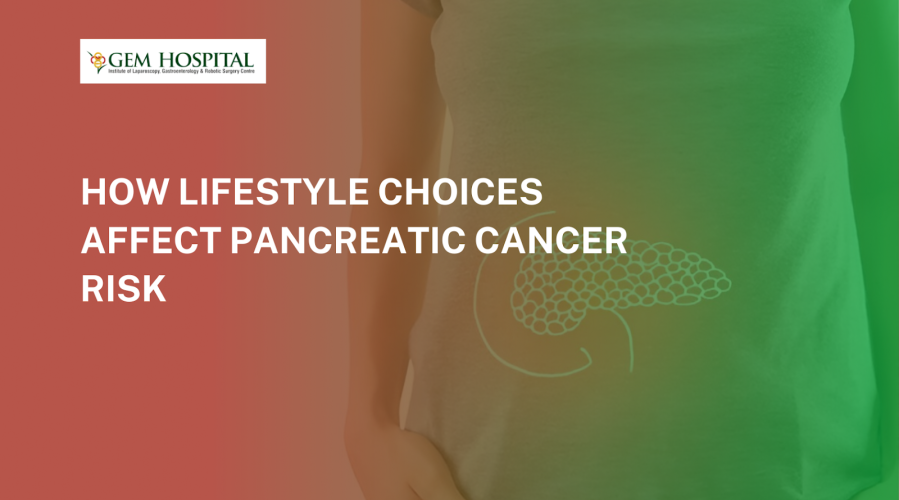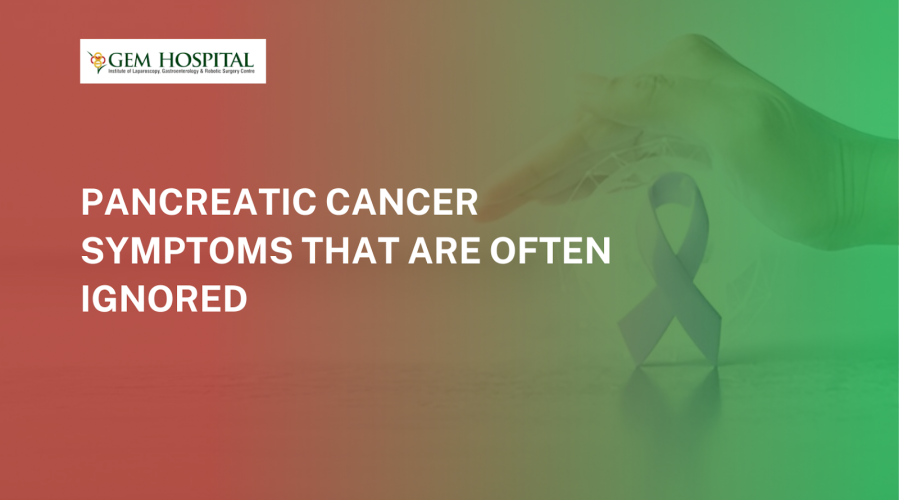Discover the early pancreatic cancer symptoms that are often ignored, from unexplained weight loss to jaundice. Early detection can improve outcomes.
How Lifestyle Choices Affect Pancreatic Cancer Risk

Pancreatic cancer is an extremely aggressive form of cancer, usually diagnosed in its later stages because the symptoms are subtle. Although family history and age do play a role, there is ample evidence to indicate that lifestyle factors generally impact pancreatic cancer risk factors. Being aware of how our choices of smoking, what we eat, how we exercise and how much we drink can influence your health can help manage your risks, and possibly lead to better outcomes long term.
The Link Between Lifestyle and Pancreatic Cancer
The choices we make in our daily lives can have a direct impact on our pancreas. The pancreas is essential to many bodily functions, such as digestion and glucose management. If an individual continuously adopts habits which lead to stress and/or damage to the pancreas, there is always a chance you will have unregulated growth of atypical cells leading to cancer.
Major Lifestyle-Related Pancreatic Cancer Risk Factors
Below are some significant lifestyle choices that can increase the risk of pancreatic cancer:
1. Smoking
Cigarette smoking is one of the most confirmed risk factors for pancreatic cancer. Studies have shown that smokers are 2-3 times more likely than someone who does not smoke, to develop pancreatic cancer. The toxins present in cigarette tobacco will damage the DNA of pancreatic cells. Long-term smokers suffer from chronic inflammation, a known risk factor for cancer.
2. Diet and Obesity
Unhealthy eating habits like processed foods; high sugars; and higher consumption of red meats can lead to obesity. Obesity is known to be a risk factor for pancreatic cancer.
3. Alcohol Consumption
Heavy drinking can result in chronic pancreatitis, which has been implicated in the development of cancer. Chronic inflammation from alcohol puts pressure on pancreatic tissues.This risk is compounded when combined with smoking; alcohol multiplies your risk
4. Lack of Physical Activity
A sedentary lifestyle causes obesity and metabolic disorders, and are top pancreatic cancer risk factors. Physical inactivity can also result in increased insulin resistance.Physical activity in normal amounts helps normalize hormones and reduces inflammation.
5. Diabetes and Poor Blood Sugar Management
Diabetes is a cause of pancreatic dysfunction as well as the result of pancreatic dysfunction. Poorly-managed diabetes naturally puts stress on pancreatic cells.A sudden onset of diabetes in older people is occasionally one of the first symptoms of pancreatic cancer.
Protective Lifestyle Choices
The good news is that adopting healthy behaviors can reduce your risks. Most doctors recommend standing on the front lines as to what we do to protect our pancreas' health:
- Quit Smoking: Quitting tobacco use decreases risk over time.
- Maintain a Healthy Weight: Following a balanced diet and exercising regularly can help control obesity.
- Limit Alcohol: The safest consumption is moderate or no alcohol.
- Eat Nutritious Diet: Vitamins-rich fruit, veggies, whole grains, and proteins are ingredients.
- Stay active: Any activity, even 30 minutes every day can lower the chances of being diagnosed with cancer.
Key Bullet Points – Quick Takeaway
- Smoking increases pancreatic cancer risk 2–3 times.
- Obesity and unhealthy diets contribute significantly to risk.
- Alcohol-induced pancreatitis raises cancer chances.
- Lack of physical activity fuels insulin resistance and inflammation.
- Preventive steps like quitting smoking, healthy eating, and exercise make a big difference.
Pancreatic Cancer and Early Detection
Pancreatic cancer often develops silently. By the time symptoms such as jaundice, weight loss, or abdominal pain appear, the disease may already be advanced. People with multiple pancreatic cancer risk factors should undergo regular health check-ups and screenings.
Some high-risk groups include:
- Those with a family history of pancreatic cancer.
- Long-term smokers or heavy drinkers.
- Patients with chronic pancreatitis or unmanaged diabetes.
- Obese individuals with sedentary lifestyles.
Why Lifestyle Modification Matters
Modifying your lifestyle cannot guarantee prevention, but it does help to greatly reduce risks. Even small, consistent changes to healthier living will strengthen the pancreas and the whole digestive system. A doctor will say combining a healthy lifestyle with regular doctor check-ups, is the best way to protect against pancreatic cancer.
Your daily habits can promote or harm pancreas. Smoking, drinking, bad diet, and lack of movement are some of the top factors that increase risks for pancreatic cancer. The positive news is that many of these risks can be circumvented with conscious lifestyle changes.
Gem Hospital is a well-known name in value and evidence care, expert care and the best in advanced treatment options for screening.
Make a healthy decision today – Book Appointment at Gem Hospital and improve your future life!
Blogs & Article
Explore how lifestyle choices like diet, smoking, alcohol, and physical activity can influence pancreatic cancer risk and steps to lower it.
Follow these simple diet and lifestyle tips after hernia surgery to prevent recurrence, promote healing, and support long-term abdominal health.


